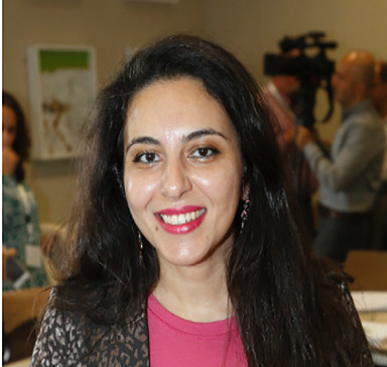
Marwa Maziad
Marwa Maziad is an International Relations and Middle East Media and Politics Expert. She is a weekly columnist for Almasry Alyoum,Egypt’s leading daily independent newspaper, as well as Al Jazeera English. She received training in news presentation and talk show presentation at Al Jazeera Training Center and has been repeatedly invited as guest anchor for a number of talk shows in Egypt. Maziad has 15 years’ experience teaching and lecturing internationally in higher education institutions in the United States, Europe, and the Middle East, on topics pertaining to international relations and intercultural political communication. She is also a conflict resolution practitioner at the Conflict Resolution Intervention Services (CRIS), employing the Marwa Maziad MMMethod© to “confront and deflate” conflicts. She has appeared for cultural and political analysis on CNN International, Al Jazeera English, BBC World Service, National Public Radio (NPR) and a number of other Arab and international media. She has held academic positions as Faculty Member of Qatar University’s Department of Social Sciences as well as Northwestern University in Qatar’s Journalism Program. This experience in Qatar led to setting a research agenda in Gulf Studies, which shaped up through her consultancy on a number of peer- reviewed international academic research grants. This also led to her participation in several Gulf Studies conferences at the University of Exeter and at the Gulf Research Meetings at University of Cambridge (2014-2016). A series of academic articles and/or book chapters ensued from these forums, including “Qatar: Cultivating ‘The Citizen’ of the Futuristic State” which was a chapter in an edited volume entitled “Representing the Nation: Heritage, Museums, National Narratives and Identity in the Arab Gulf States” (Routledge 2016). One of her two forthcoming academic articles is on Egypt-GCC relations entitled “Qatar in Egypt: The Politics of Al Jazeera.” The other is on Qatar’s national security policies within a dynamic regional order entitled “Mercenaries-on-Demand: Jihadists as Means of Military Diversification in Qatar’s Foreign Policy.” Maziad received her Masters in International Communication from the University of Washington and has been a Fellow at the Middle East Center of Jackson School of International Studies. Her MA thesis entitled “Youssef Chahine’s Cinema: The Hospitable Space between ‘Self’ and ‘Other,’” traced depictions of East-West relations in the work of internationally renowned Egyptian Filmmaker Youssef Chahine (1926-2008). She succeeded in securing interviews with the prominent director around two critical historical moments: September 11, 2001 and the US War on Iraq in 2003. 7 Her PhD work on comparative politics of the Middle East, with a focus on “oscillating civil-military relations in Turkey, Egypt and Israel 1980-2015” was done at the University of Washington. She was a selected Fellow at Columbia University’s Summer Workshop on Analysis of Military Operations and Strategy (SWAMOS), 2015. Her paper was selected for the European Research Group on Military and Society (ERGOMAS), 2015. She was also an invited Fellow to chair a panel at the Inter-University Seminar on Armed Forces and Society (IUSAFS) in Chicago, 2015. She presented her comparative research in Rio de Janeiro (2016), at the International Conference on Transformations in the Military Profession as part of the International Sociological Association’s (ISA) Research Committee (RC01) on Armed Forces and Conflict Resolution. Maziad is also a photojournalist by training and has produced two documentary films. Conversation 1: American Perceptions of the War on Iraq (2003) has been internationally screened in the United States and Europe. USA-SA: A Dialogue between American and South African Women (2004) addressed common challenges and opportunities facing women in both countries and beyond. She is fluent in Arabic, English, French, Turkish, and Hebrew and has also studied Spanish, Italian, and German.